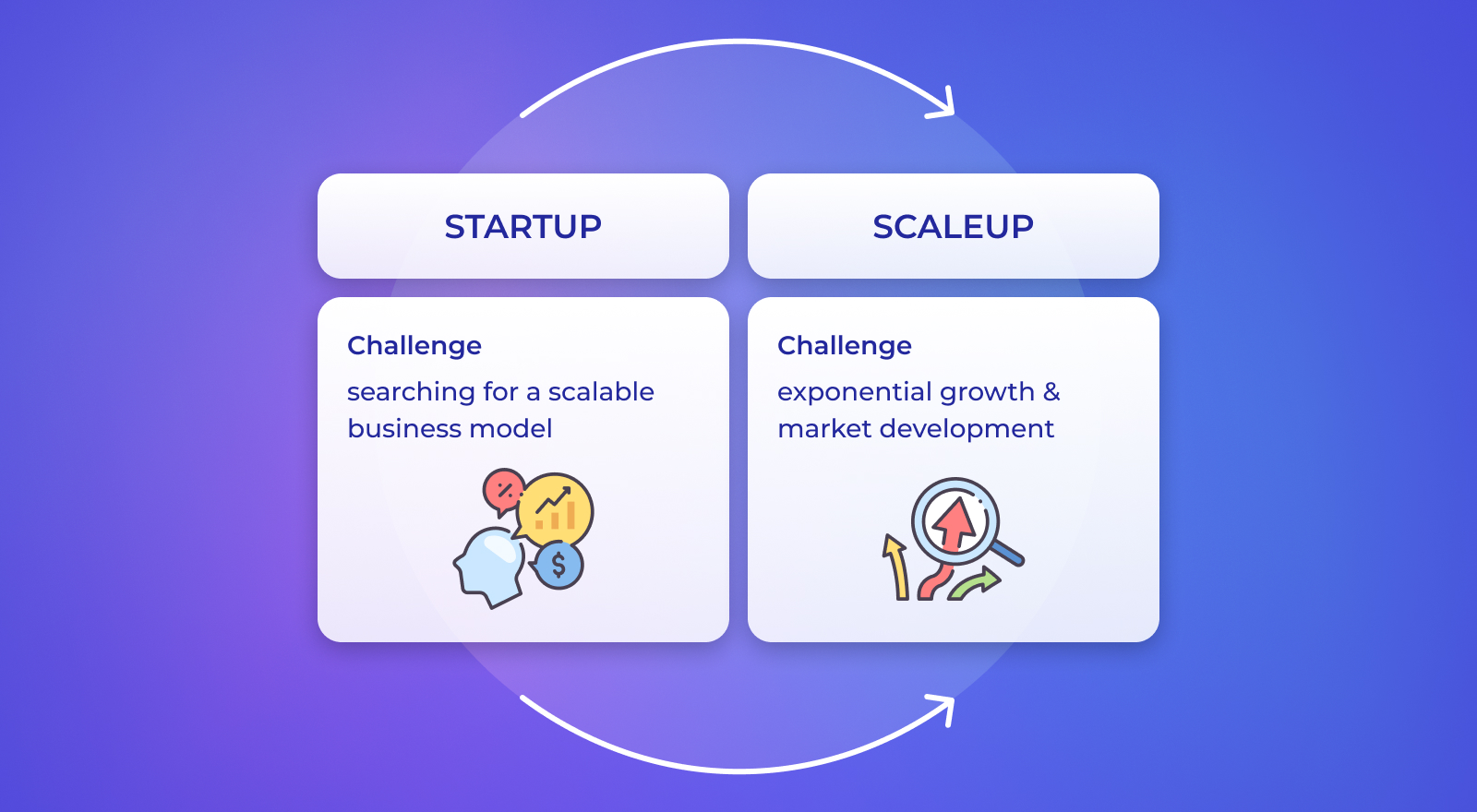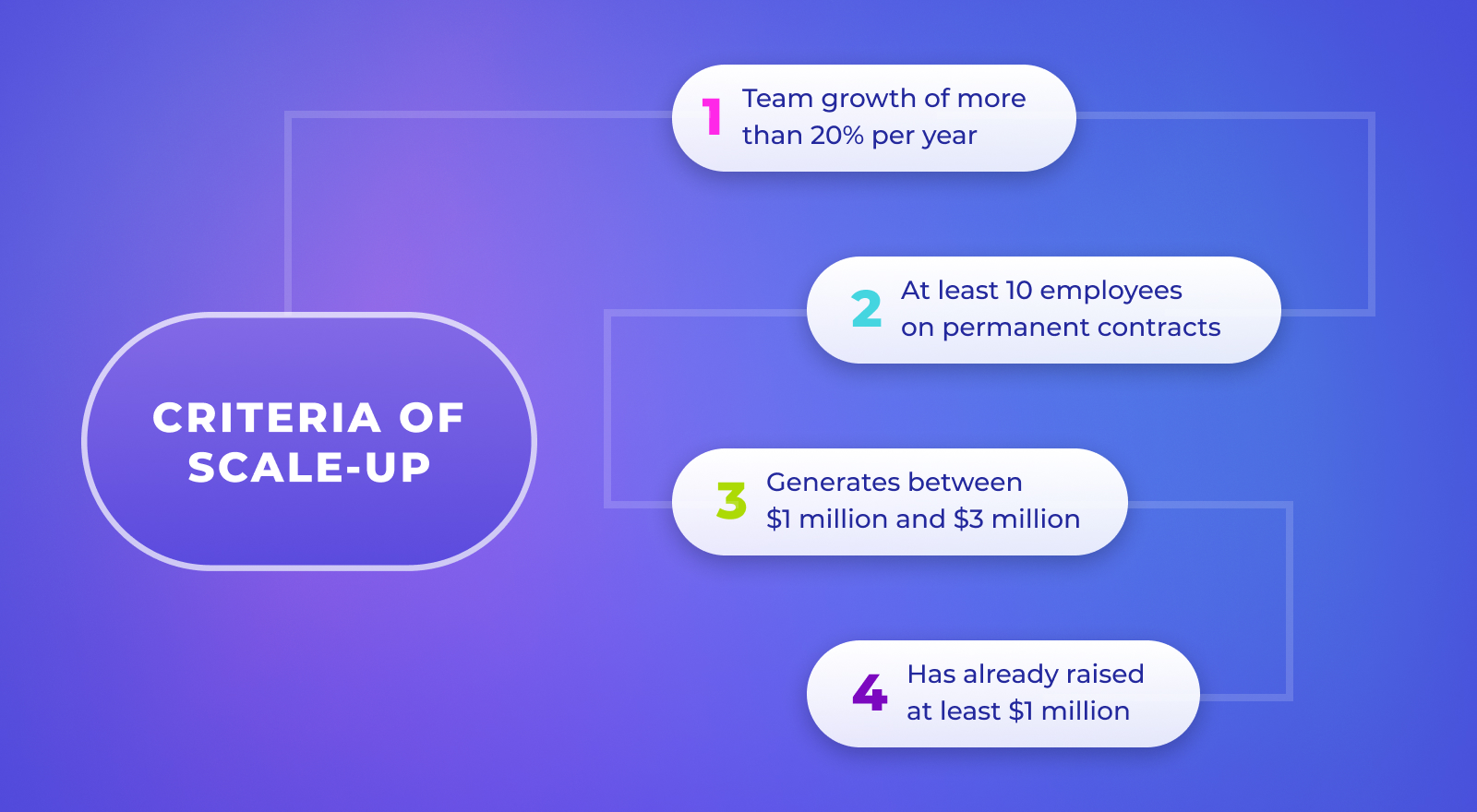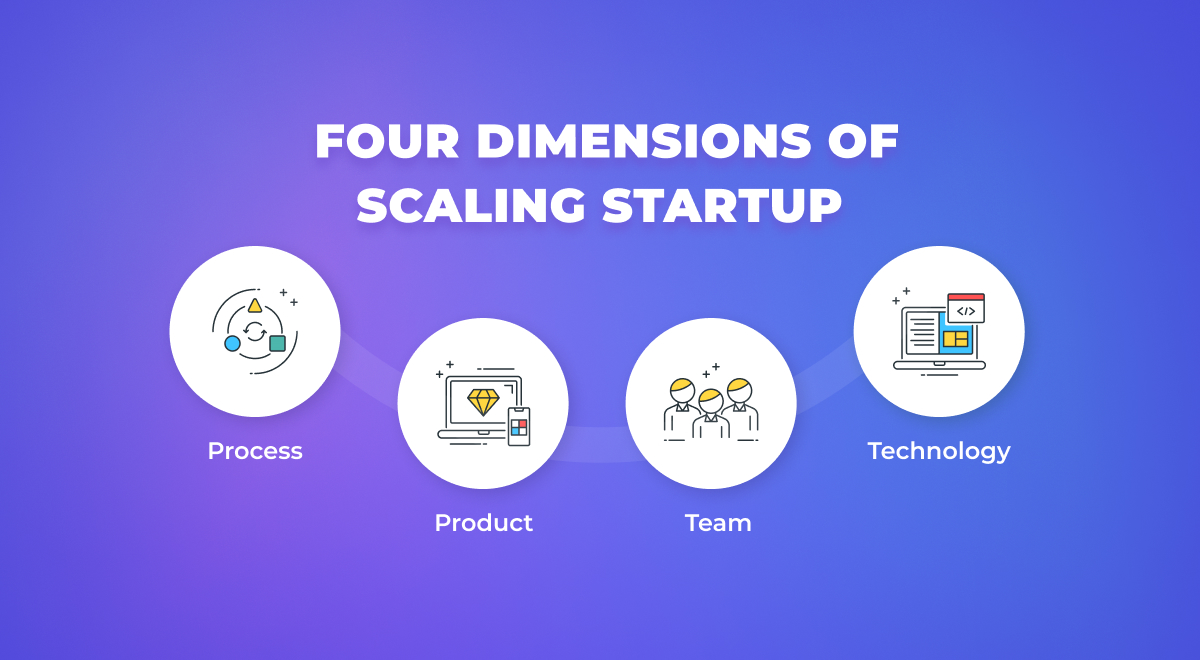Table of Contents
For any tech startup, the development process is both essential and challenging. In the early stages, it’s all about assembling a strong and enthusiastic development team, finding an unoccupied niche, and creating an innovative product in demand.
However, when a startup operates successfully for quite some time, it reaches a point when it can no longer work the same way as before. In most cases, there are only two scenarios: the one when the startup shuts down and the second, more optimistic, where the startup scales up and expands its ambitions and market share.
It might be hard to go from the old development process to the new one that will facilitate growth, especially when your team doesn’t possess relevant experience. In this case, cooperating with a software development company with such expertise may help you cross the critical point and secure the viability of your startup.
Altamira share the main points on software development for startups in later stages you might need to know to succeed.
Why Startups Should Change Their Approach to Software Development on Latest Stages
Startups, at their core, are different from any other traditional business, as they leverage new technologies to create an innovative product. For these goals, startup teams are bound to come up with their own vision of how their business processes should be built.
Hence, a startup project paves its own way to success, testing different approaches and concepts. The development team should be flexible enough to adjust to new challenges that arise constantly.
With such an order of things, the initial stages may look the most challenging and demand a lot of effort and energy from startup founders, software developers, and other team members.
However, when things start to look up, your business idea proved itself, and your business start to grow, you may encounter a new crisis. It would be a problem to support and facilitate the growth your project encountered.
The number of clients using your software products will grow, creating additional pressure on your technical and operational capacities.
The Main Struggles Growing Tech Startups Faces
So, what are the main challenges you need to be ready to handle when your startup operates successfully for a few years?
Challenge #1: Your Focus Shifted from the Product Itself To Other Aspects
Even when you have generated a certain client base and secured your positions, you can’t let them focus on your product get overshadowed by other business processes.
It would be nice to wrap up the product development process after a few first releases, but unfortunately, it’s an impossible scenario.
To stay relevant, you should constantly be working on improving your software quality, fixing minor and major bugs, reducing technical debt, and adding new features that will increase the competitiveness of your product. Otherwise, you risk getting stuck in one place, and in the current ever-changing world, it’s a direct way to bankruptcy.
Challenge #2: Your Infrastructure Isn’t Enough to Sustain Current Volumes or Won’t Withstand Further Growth
The technologies you use for a minimum viable product designed to work for five hundred people might not be sufficient to withstand the system load of several thousand users.
The right tech infrastructure, as well as software architecture, is essential for your development process scaling. Until you create a strong environment and have the basics that will be able to handle required volumes and load without a hitch, you will suffer from system crashes and low customer satisfaction.
Challenge #3: Your In-house Team is Overloaded
Even the best dream team has its limit. So, the growth of your project should correspond with the expansion of your development team. Otherwise, you risk burning out your core team and stalling the future development of your product.
However, it’s not as simple as it sounds. For startup founders and any other team member highly invested in the process, it might be hard to delegate and share ownership over the product with someone new.
There is also a challenge of picking the right developers to support and scale up the development. Onboarding new people into the team or synchronizing the in-house team with a third-party technology partner might be extremely difficult too.
Scale-up: The Next Stage of Startup Development
When the startup is able to overcome the aforementioned challenges and enter a new level of its development, it turns into a scale-up company. It’s one of the most positive outcomes a startup may reach.
The only better one might be only turning into a “unicorn” at once, but this might be a rare privilege.
What is a Scale-up Company?
Basically, a scale-up company is a successful start-up that is constantly growing and increasing its volumes.
It’s a natural stage for any startup. Usually, it takes around three years for startups to reach the point where they can turn into scale-ups or get acquired by a bigger company or shut down completely.
At this point of development, the startup gradually expands its customer base, reaches foreign clients, and strengthens its influence on the market.
Do You Need Additional Software Developers to Go From Startup to Scale-up?
The answer here is quite simple: yes, most probably you will need to seek help from other software developers.
Scaling up means that the scope of work increases. It might be due to the influx of startup clients or improving the product functionality. Either way, adding more engineers will more efficiently than overloading the current team.
To set a stable and strong path for software development, you will need not only developers who will do actual coding and quality assurance, but different strategical specialists who will:
- take care of architecture;
- create and support necessary working environments;
- provide knowledge transfer between old-timers of the projects and newcomers.
As you can see, setting up an adequate product development process is key to ensuring further growth. For example, without clear and comprehensible project documentation, even Google-level engineers would struggle to get into work and actually contribute to the development process.
The same goes with architecture scalability, availability of long-term development and business strategy, and automation of the development process. When your project has all of these aspects, the onboarding of new developers will go much easier and will guarantee rapid development.
Software Development for Startups Turning Into Scale-ups: Our Solution to Major Challenges
Our team has closely studied the challenges that scaling start-ups encounter while working on such types of projects. We have taken this knowledge and converted it into a framework of software development for startups that are growing.
Here are the main practices that we follow to facilitate the further development of startups.
The Main Software Development Aspects We Help With
To get to the desired result, we divide the project into four main areas of focus.
Process
As we mentioned, setting the process right is important, as it will remove the issues of missed deadlines, low velocity, a big amount of bugs, and expansion of technical debt.
We make it possible through:
- picking and setting up appropriate instruments;
- creating onboarding methodology and using it to onboard developers that join the development project;
- choose and implement the right key metrics to track the progress of every step;
- build further decision-making processes upon observed metrics.
Product
Here, our goal is to create a long-term product vision and ensure that the plans are actually realistic to complete without sacrificing software quality.
Our team focuses on ensuring the availability of :
- product backlog high level for at least three months to understand the team capacity required for the next development phase;
- framework for the backlog documentation;
- framework for the end-user feedback.
Team
You most likely have already assembled your own software engineering team or cooperated with other software development companies. Most likely, right now the challenges arise because your startup is lacking core technology specialists and decision-makers. Hence, the whole software development process, as well as hiring, is chaotic and excessively resource-consuming.
To overcome this, we develop:
- a team onboarding plan and team ramp-up plan per month;
- a team expenses plan;
- team composition which includes involving or hiring experts for core positions like tech leads, architects, etc
Technology
The technology aspect can be another weak spot for startups. On the step of MVP development, you might have sacrificed or neglected something, and it has worked. However, at this point in time, this miss is a cornerstone of many other issues.
We help cover them by:
- set up maximum automation for the development, including unit tests, API automation;
- defining architecture framework;
- setting up quality metrics;
- setting up and automation CI/CD;
- ensuring adequate documentation.
Top Tips for Software Development for Startup from our Team
So, what other useful tip can our team share for growing startups that will help them get the most value from cooperation with software development companies?
Tip 1: Choose Long-Term Strategy
At this stage, your business goals are tied to scalability, and it can be guaranteed only when there is also stability. And to get to this point, you should have a clear view of what you want to reach, how you want to measure your success. It’s also important to have stable and well-planned development.
Hence, forming a strategy and following it is essential. Of course, to develop software, you still need a certain amount of flexibility. But letting a reactive approach prevail thought through the plan will be a mistake. That’s why we dedicate so many efforts to strategical tasks in our development services for startups.
Tip 2: Build Proper Communication Between In-house and Outsourced Team
Sometimes, problems may arise because initial and outsourced teams can’t synchronize and start working separately instead of combining efforts. As a result, you may find yourself in a situation where both teams develop the same functionality two times or their code can’t work together.
To avoid this, we suggest starting off on the right foot. It means uniting all developers into one distributed team, conducting joint meetings, retros, groomings, as well as having joint planning and coordination.
Tip 3: Balance Scope and Sprint Planning
Sprints are the essence of agile development that the majority of teams, including us, follow nowadays. This methodology is so popular because it allows making changes in planned scopes pretty easy and painless.
However, to get the maximal business value for your startup, you should balance carefully between drastically replacing the preplanned backlog with sudden additions. Of course, it is important to consider market needs and user feedback, but dismissing a significant part of the closest sprints would be unwise.
The more close sprint is, the fewer changes it should go through. Usually, we suggest the next proportion for a project: the current sprint should be intact, the next one may change up to 20%, the one after that — up to 50%, and the fourth could be changed fully.
Altamira as a Top Software Development Company for Startups
Altamira has been successfully delivering custom software development for more than a decade. We specialize in web development, mobile app development, and pay special attention to software development for startups.
Our Approach to Software Development for Startups
For years, we have been generating expertise and testing different approaches for custom software development. Nowadays, we are ready to provide working development frameworks that have already proven their efficiency on many projects of our clients.
By choosing our development services, you get:
- a strong team of engineering talents that know how to handle even the most challenging projects;
- access to proven methodologies designed for scaling startups;
- high level of ownership over your project from our side;
- flexible cooperation and payment terms, including dedicated team model;
- transparent budgeting and report;
- availability of sufficient resources and expertise for a long-term partnership.
Our Success Software Development Projects for Startups
Through the years of our work, we have successfully executed the next projects for our clients.
Zemp Center: SaaS POS Software
Zemp Center came to us as a SaaS POS project that needed help with mobile app development. Our client had a web version for their software, but it wasn’t enough to stay competitive on the market and satisfy clients’ needs. The team needed to acquire a mobile application for POS software and applied to us.
As a result, we delivered a self-sufficient, user-friendly mobile POS application. We have successfully integrated it with the existing Zemp POS back-end and enhanced the product line of the company.
Propstech: Real Estate Management System
Propstech, another SaaS software, is a profound system for real estate managers. It is designed to simplify the majority of operations that take place during property renting. With the help of this system, real estate managers can easily manage the processes between them, landlords, and tenants.
Our dedicated team helped to deliver a web system for real estate managers, along with a mobile application designed for tenants.
In Conclusion
To get your startup to grow from a minimum viable product to a prominent system, you should be ready to change and adjust. Most probably, the methods that showed themselves as efficient in the beginning might not be enough at this stage of your startup development.
However, obtaining the necessary expertise and overcoming the crisis of scaling isn’t that difficult, especially if you acquire a software development partner who can share relevant expertise.








